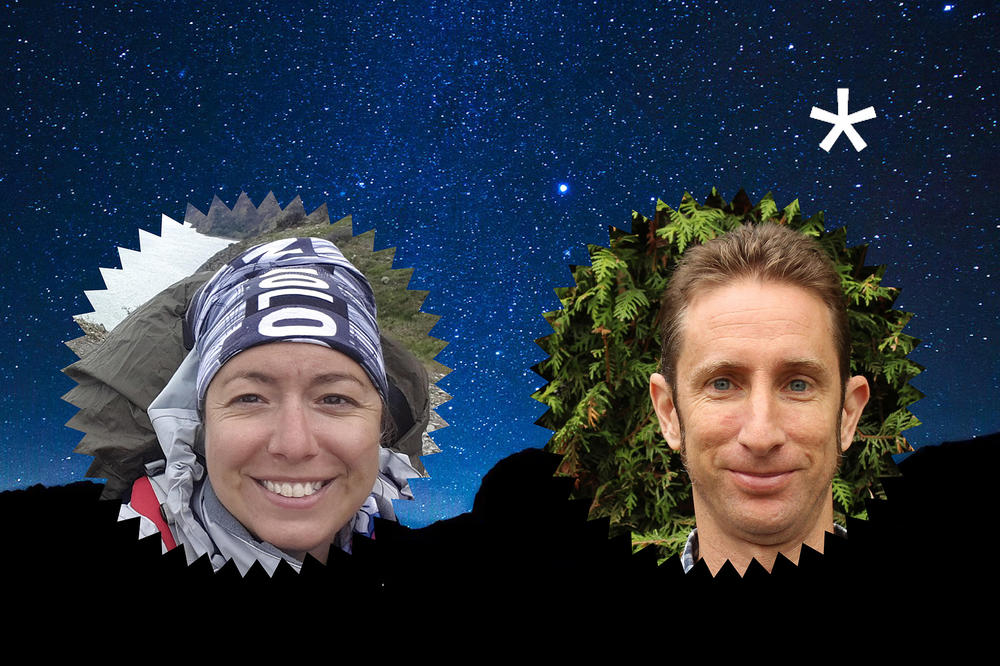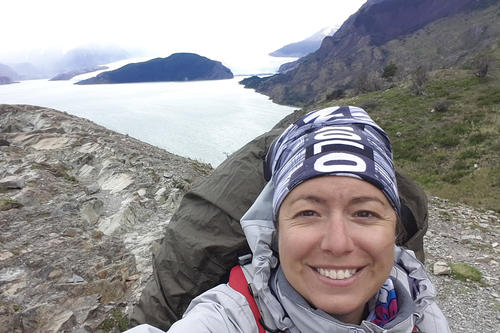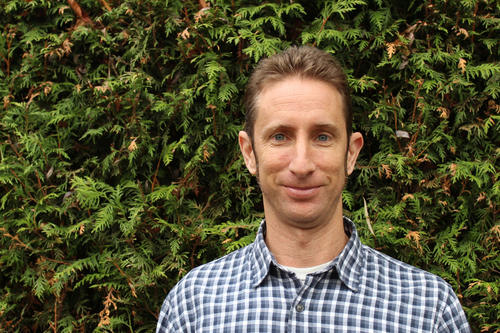May we introduce: Florencia and Tom, Rising Star Fellows
Florencia Yannelli
The biologist Florencia Yannelli came to Freie Universität Berlin as a Rising Star Fellow in September 2019. She received the fellowship for a research proposal where seeking to understand how trends in invasive-native plant trait dissimilarity, changing abiotic conditions and soil microbe composition influence the success of invasive alien species in urban environments. Given that there is still a lack in understanding about the linkages between plant and soil communities, with her project she aims to shed light on how both components might work in concert enhancing alien invasive species performance. In this context, two internationally recognized working groups at Freie Universität Berlin covering different aspects in her research, made the University very attractive as the next stop in her career. In the Ecological Novelty group of Prof. Dr. Jonathan Jeschke at the Institute of Biology, she is now investigating this and other aspects influencing how invasive plant species impact plant-microbial interactions and how these changes affect invasion success and ecological restoration. In doing so, she also cooperates with the working group for soil ecology of Prof. Dr. Matthias Rillig.
Florencia Yannelli studied “Renewable Natural Resources Engineering” at the Universidad Nacional de Cuyo in Argentina and moved to the Technische Universität München in 2012 to do her PhD. In 2016 she submitted her dissertation on “Biological invasions and restoration: trait-based design of seed mixtures, biotic resistance and competition with native species”. Afterwards, as a postdoctoral fellow at the Centre for Invasion Biology of Stellenbosch University in South Africa, she investigated “the implications for restoration of legacy effects on soil microbial community structure and function following the clearing of Acacia invasions”. She is actively involved in activities looking to bridge the gap between science and society and to promote gender-equality in academia.
“When I left Germany in 2016, I was not sure I was ever going to come back for a position again since I really missed being in the Southern Hemisphere. Nevertheless, during my postdoc times in Stellenbosch and now married to a German scientist, I realized that Germany was the most attractive place if I wanted to come back to Europe, specially given the country’s commitment to increasing the budget for science compared to the unfortunate more common opposite trend in other places. Being aware that Berlin is a science and culture hub and adding its internationally renowned research groups in my field made the decision to choose this city easy. I researched for all available opportunities and was thrilled to find the Rising Star fellowship which offered just what I wanted: the freedom to design my own project and the mentorship needed to further my career.The fellowship started only one month before my baby was born, yet I was very lucky to find out that all people at the University were very supportive (working groups, Professors, admin officials), specially after my maternity leave ended and I had to start my project in the midst of a pandemic. Although the lockdown situation made my original plans difficult to follow, we have tried to overcome limitations by having family ‘field’ observations during our walks and even starting an experiment in our very own balcony (see our article in Nature careers). I am also very lucky to have connected with other wonderful and talented female scientists, with whom I am involved in projects related to science communication, increasing female representation in STEM and sharing experiences of being an academic mom. Overall, I am so happy to have had the opportunity to come to the Freie Universität Berlin with this grant and can say that, although I often miss our camping trips in the South, Berlin really feels like home now.”
Tom Bielik
In November 2019 Tom Bielik arrived at Freie Universität Berlin as a Rising Star Fellow. The aim of his research is to integrate students into advanced digital learning environments. His research focuses on engaging students in advanced digital learning environments, using inquiry and Project-Based Learning approach, to promote their scientific literacy and interest. In the Didactics of Biology group of Prof. Dr. Dirk Krüger and in cooperation with NatLab, the participatory laboratory for students under the direction of Prof. Dr. Petra Skiebe-Corette, he is investigating how students can gain practical experience with scientific modeling, mostly using the open-access online modeling learning environment, SageModeler, which was recently translated to German.
Tom Bielik received his B.Sc. in animal science from the Department of Agriculture at the Hebrew University and his M.Sc. in cancer research from the Department of Cell Research and Immunology at Tel Aviv University. He was also a middle school science teacher and a program director at the Davidson Institute for Science Education.
His PhD thesis was achieved at the Department of Science Teaching at the Weizmann Institute of Science, where he also received a teaching certificate in high-school biology. Following that he moved to Michigan, USA to conduct a post-doc research at CREATE for STEM Institute at Michigan State University.
In the past year since his arrival, Tom engaged in several research projects with Freie Universität researchers and with researchers from other universities, such as the Humboldt University, the Fritz Haber Institute of the Max Planck Society, and the Ben-Gurion University in Israel. These projects produced a plethora of results related to the teaching and learning of science, such as evaluating pre-service teachers’ perceptions toward using digital media in classroom, assessing students’ system thinking in the context of Covid19 outbreak, and investigating the historical relationship between the renown chemists Prof. Fritz Haber and Dr. Haim Weizmann (recently published paper can be accessed here).
“I applied for the Rising Star Junior Fellowship as an opportunity to advance my research experience and to collaborate with the wonderful researchers at Freie Universität, as well as to get familiar with the advanced educational system in Germany. The last year had provided me with these opportunities, and much more. I found the staff and researchers at Freie Universität, especially in the group of Prof. Dr. Krüger, to be open-minded, enthusiastic and hard-working. Despite the challenges we all face at the time of Covid19, I was able to establish many fruitful collaborations with different researchers that produced exciting findings in our research field. I mostly appreciate the independence I have here to choose the projects I find most relevant and the supportive atmosphere on campus.Learning the German language is one of my biggest challenges, as I try to engage more directly with the students and local environment. In the coming year, I hope to continue these collaborations, to continue engaging with students in the courses and to gain more publications and grants to further promote my research, perhaps even for the longer term beyond the scope of the Rising Star Junior Fellowship. And above all, I hope that the Covid19 outbreak will fade away soon, so that we can go back to our routine scientific work and to allow me to visit my family and friends back in Israel.”


